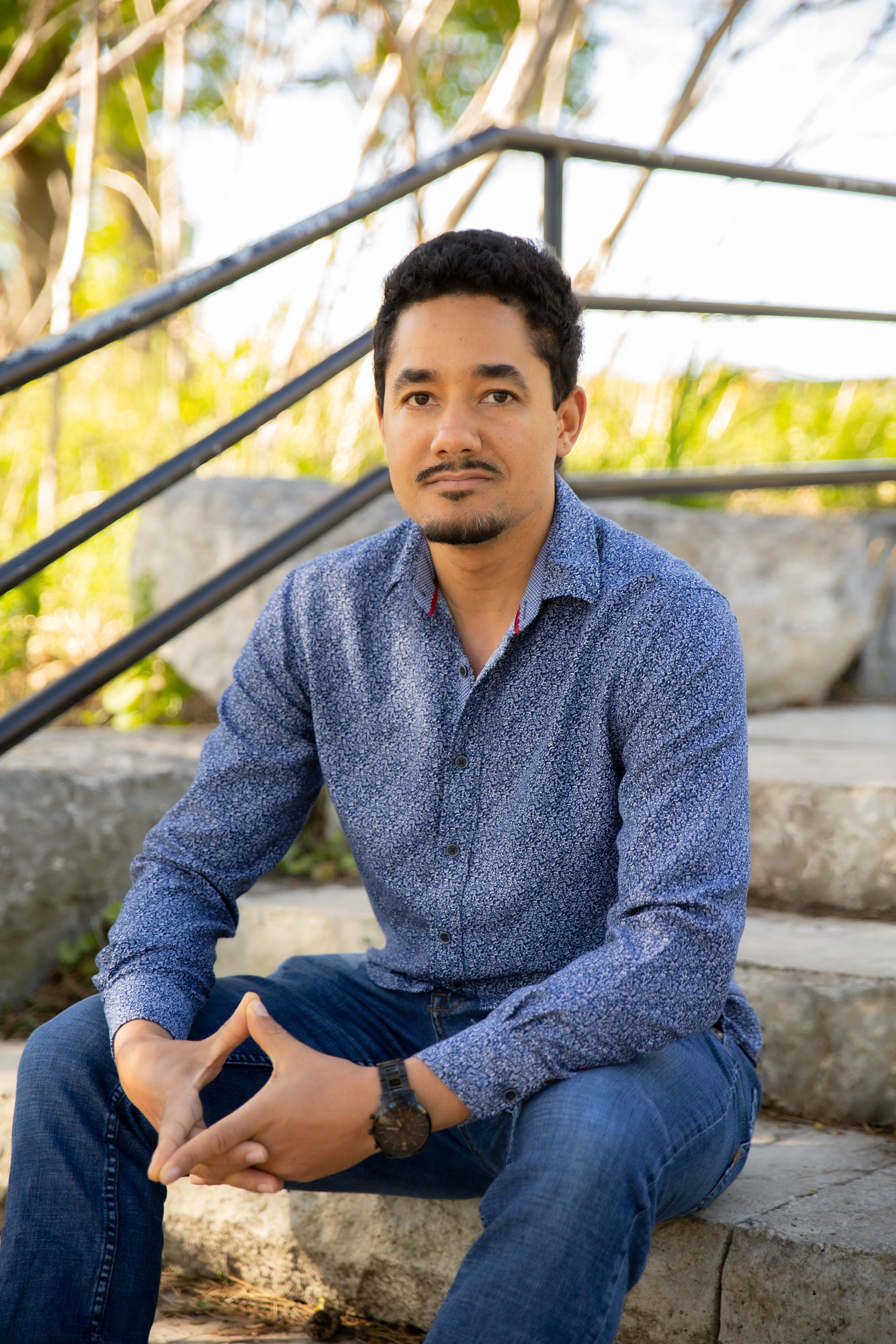Social entrepreneur Kofi Hope (HBA ’06 Innis) says now is the time for a new vision.
I am a 2006 Innis graduate, a community leader, and a social entrepreneur. I am the co-founder of Monumental, a business that works to support major organizations to contribute to an equitable recovery from COVID-19. I am a Rhodes Scholar and Oxford PhD and monthly columnist for the Toronto Star. I explore topics of urban equity as an adjunct professor in U of T’s Geography and Planning Department and as a Senior Fellow at the Wellesley Institute.
Kofi Hope
 This year’s magazine theme is “reimagining.” Given that you are a co-founder (along with Zahra Ebrahim) of Monumental, a business dedicated to an equitable recovery from COVID-19, do you see the post-pandemic period as an opportunity for cities to reimagine or reinvent themselves for the better?
This year’s magazine theme is “reimagining.” Given that you are a co-founder (along with Zahra Ebrahim) of Monumental, a business dedicated to an equitable recovery from COVID-19, do you see the post-pandemic period as an opportunity for cities to reimagine or reinvent themselves for the better?
Yes. The pandemic and the global protests around racial justice that took place after the murder of George Floyd have forced many people to take a hard look at the inequities that still exist in our society, and specifically here in Toronto. We have many things to be proud of, but the reality is the last few decades have been a time when our city has become increasingly unequal and incredibly unaffordable.
We are a city segregated along lines of class and race, with essential workers living predominately on the periphery, many times travelling into the “Old City of Toronto” to provide vital services and supports to the managerial/professional classes whose incomes and privileges only continue to rise.
COVID-19 showed building a society like this lowers our collective resilience and ability to respond to shocks. But it also makes us politically vulnerable to populist leaders who will use our social divisions to fuel politics of resentment. Collectively, this is the moment to chart a different course, but a burning question is will those who have massively benefitted from our current economic and social system be willing to give up some power to help us rebalance?
When you were studying at U of T you were involved in several initiatives for social change. What would you say to today’s students advocating for change?
I would say keep pushing the limits of what’s possible. Keep challenging those of us who are more entrenched in the current system and ways of thinking to look at the world differently. But also realize that this is a collective struggle. Ultimately, we must do this work for the benefit of all human beings—and our planet. And recognize that all of us actually understand just a tiny fraction of what’s really going on in the universe.
So be courageous, but also recognize the limits of your knowledge, and realize you can learn and even collaborate with people from all sorts of places, even the “other side” on issues you’re passionate about. Finally, I’d say to also appreciate that we need broad movements for change: there is a role for activists; there is a role for folks working inside the system for change; there is a role for those with privilege and
those struggling for justice.
(Photo of Kofi Hope, above, by Shayla Anderson)
This story originally appeared in the 2020/21 Innis Alumni & Friends magazine.